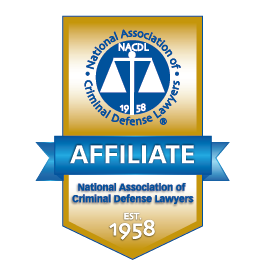California Penal Code 290 requires individuals convicted of a sex offense to register as a sex offender. The sex offender registry is a public record and hence accessible to anyone who needs information about you. For this reason, it is impossible for a person convicted of a sex crime to rebuild their life while their names remain in the offender’s registry. The registry limits your interactions with people, where you can work, and your residence.
Fortunately, removal from the registry is a possible option for individuals who want to leave their past behind them and move forwards as upstanding community members. Depending on the type of crime for which you were convicted, you can remain in the registry for ten, twenty years, or a lifetime. Termination of the registration will be a great step towards living a normal life.
Various legal proceedings are available for defendants who want to pursue a registration termination. However, each option has an eligibility criterion you must meet before moving forward. Navigating the sex offender registration termination in Orange County,CA requires the expert legal guidance we offer at The Record Expungement Attorney Law Firm.
Depending on the type of sex offense you committed and the tier or registration under with you fall, you can explore the following termination options:
Petition for a Certificate of Rehabilitation
A rehabilitation certificate is a post-conviction relief that is offered when the judge finds that you have been rehabilitated following your conviction. Like other post-conviction reliefs, not all individuals can obtain the rehabilitation certificate. You must meet the following criteria:
- You are not on parole, probation, or community supervision
- You have continuously lived in California for a specified period
- You have been rehabilitated for several years through incarceration or probation.
If you faced a felony sex offense conviction and the court sentenced you to pronation, you must meet these requirements for eligibility:
- Seek an expungement or dismissal of your case. Alternatively, you can petition the court to reduce your felony conviction to a misdemeanor. Reduction of your charges will also benefit you when you want to obtain a professional certificate.
- You have not spent time in prison or jail after expunging the conviction.
The time period you need to wait before applying for a COR varies depending on the severity of the crime you committed. Most sex crimes that require sex offender registration have a ten-year waiting period before you can obtain a COR. This will include five years for rehabilitation and another five for residency in California. Suppose you are convicted for the following sex offenses. In that case, a certificate of rehabilitation is not an option to terminate your sex offender registration:
- Forcible sexual penetration with a minor under California Penal Code 289j
- Continuous child sexual abuse under PC 288.5
- Child molestation under PC 288
- Sodomy on a juvenile using fear, violence or threats
- Forced oral copulation with a child under fourteen years
Even when you face a conviction for an eligible sex offense, your COR petition can be denied when the judge determines that you are a threat to minors.
Termination of your Sex Offender Registration through the COR
Obtaining a certificate of rehabilitation offers numerous benefits. When there is proof that you are rehabilitated, licensing bodies and employers will not discriminate against you using the conviction. Additionally, the COR is the first step in obtaining your governor’s pardon.
If you have been convicted of a sex offense and the offender registration lingers over your head, you can seek a termination through the certificate of rehabilitation. However, you must not be in custody, on parole, or on probation at the time of your petition. A sex-offender registration based on these crimes will not be terminated with a COR:
- Kidnapping with an intention to commit sodomy, rape, or oral copulation with the victim
- Felony sexual assault
- Assault with the intention to commit a sex crime
- Pandering or felony pimping
- Lascivious conduct with a minor
- Forced oral sex on a juvenile
- Molesting or annoying a child
- Human trafficking
If you are ineligible for a sex-offender registration based on the nature of your crime, you can still be relived from the duty by obtaining a governor’s pardon. You will receive a governor’s pardon when you exhibit a high level of rehabilitation after your arrest and conviction. The governor’s pardon will relieve you of almost all collateral consequences of your sex crime conviction.
The application process for a certificate of rehabilitation in California includes the following steps:
-
Obtain and File the Petition.
You can obtain a COR petition from the superior court of your county. Often your record expungement attorney will help you obtain and file the petition.
-
Obtain Copies of your Criminal Record
Together with your COR petition, you must submit all relevant information about all your convictions, including the following:
- Date for each conviction
- Charges for which you were convicted
- County where the conviction happened
- The types of sentences imposed for your conviction
- Date of release from prison or jail
- Date of discharge from parole or probation
You can obtain your criminal record through the department of justice or the court where you were convicted. A recovery fee for your criminal is up to $25. When applying for your COR, you have the right to have a legal representative. Your lawyer will help you obtain the relevant information and fill out the paperwork for the petition. Besides the fee for obtaining your criminal record, there is no filing fee for a rehabilitation certificate.
-
Attend your Hearing.
The court will schedule a hearing where your attorney can convince the court that you need rehabilitation and are a better person. Mostly, the prosecution can be against your petition. Therefore, a skilled lawyer can meet with the prosecution team and convince them to support your petition.
Factors Affecting your Petition for a Certificate of Rehabilitation
You can explore a certificate of rehabilitation to terminate your sex offender registration. However, the court considers the following factors to determine and check your level of rehabilitation:
- Your work and education history. Having sought and maintained employment indicates progress in the positive direction. The situation would be better if you did volunteer work.
- Recommendation from employers, coworkers, friends, family, or teachers
- Proof of residence
- Your prison record
- Performance on probation or parole
- Arguments presented by the district attorney or prosecution
- Any information that would establish a good character
If all your documents are in order and your petition does not have mistaken, you can receive the COR within two to six months. When you receive your rehabilitation certificate, the court will forward the document to the DOJ, parole board, and the governor’s office. You will then be released from the sex offender’s registry.
Petition Under Senate Bill 384
SB 384 is a new law that classifies sex offender registration based on the severity:
- Tier three. A tier three sex offense registration is reserved for serious and violent sex offenses like forced oral sex, kidnapping for rape, statutory rape, and penetration using a foreign object, among others. If your crime falls under this tier, your name and personal details will remain in the sex offender registry for a lifetime.
- Tier two. Offenses that are less serious than tier-three offenses will fall under this category. Most sex crimes involving child ten will fall under this category even when there is no evidence of physical force or violence. For tier-two offenses, you must remain in the registry for a mandatory period of twenty years.
- Tier one. Sex crimes can range from minor acts like exposing your genitals in public to serious offenses like rape causing serious bodily injury. If you are convicted for minor offenses like lewd conduct in public and indecent exposure, your registration lies under tier one. Tier one offenders must remain in the California sex offender registry for ten years before seeking a termination of the requirement.
For individuals registering under tiers one and two, filing a petition under SB 384 may help them terminate the sex offender registration after their minimum registration time has elapsed. A petition to remove your name from the sex offender registry can be done upon your registration's expiration.
Even when you have completed your registration period, you are ineligible for termination under SB 384 under the following circumstances:
You have a pending criminal charge.
If, after completing your registration, you have a pending case for an offense that could change your tier allocation, the judge will not grant your petition for removal from the registry. For example, if you are convicted of indecent exposure, you are eligible for termination after ten years on the registry. However, if, at the time of your petition, you have pending charges for rape, the court will dismiss your petition.
You are in custody.
Your sex offender registration status begins on the day of your release from jail or prison. If you are still in prison for your sex crime or another offense, you are not eligible for termination of sex offender status.
You are on parole or probation.
One of the requirements for your sex offender registration termination is completing all your legal obligations to the sex crime. Therefore, if you have not served your full probation sentence, you cannot file the petition under SB 384.
You are a Tier three registrant.
Sex offender registration under tier three lasts for a lifetime. This is because serious and violent offenses fall under this category. Keeping the offender registered for the rest of their lives is the court's way of ensuring the safety of others in the community. Each time a crime or a missing person is reported, the sex offenders are interviewed to rule out their involvement in the crime.
Unfortunately, tier three registrants cannot be granted a termination. However, if you are placed on tier three due to your level of risk, you can file a petition under SB 384 after twenty years of entering the registry.
Even when you meet the eligibility criteria and the mandated time has passed, the district attorney may object to the termination of your sex offender registration status. The district attorney argues to the court that remaining in the registry would be in the best interest of other people’s safety. An objection may be based on these factors:
- The nature of your underlying crime. If you have committed a serious sex crime that involves harming another person, the prosecutor can convince the court that you are a threat.
- Number of victims and their age. California law is stringent on individuals who commit crimes against children. Therefore, if you are a registered sex offender for a sex crime against a young child, the prosecution must fight to ensure you retain the status. Additionally, this will be the case if you have committed crimes against multiple victims.
- Your criminal history. If you are a repeat offender and have other sex offenses in your conviction, your chances of receiving a termination of sex offender status are minimal. The prosecution will argue your likelihood of committing another sex offense.
- Your risk score. By assessing your risk of harming others or committing another crime through standardized tests, the prosecution will decide on contesting your petition.
An opposed petition will prompt a litigation hearing. At this hearing, you can explain away all the concerns raised by the prosecution. The court will then decide on your petition discreetly.
Petition for Exclusion from the Public Registry under Penal Code 290.46
The California legislature amended Megan’s law which requires the Department of justice to display the names, addresses, pictures, and other identifying information of sex offenders. The Megan’s law website is open to the public at all times. Being a sex offender limits your life significantly, and with this new law, your picture will be visible to your friends and family. There are circumstances under which some offenders can have their information excluded from this website by filing a petition under California Penal Code 290.46. you are eligible to file a petition under this statute if you committed the following crimes:
- Sexual battery under PC 243.4
- Misdemeanor penal Code 266, which involves enticing a child for prostitution
- Processing, distribution, and making of child pornography
If you are sentenced to probation for your sex crime, you can petition for exclusion after probation completion or while you serve your probation. If you are still serving your probation sentence, you will need a probation report stating that you are a victim’s parent, stepparent, grandparent, or sibling.
Being removed from Megan’s law website only means your information is not accessible to the public. However, other public or private offender websites can display your information. However, your registration requirement is not terminated. You must contribute to renewing your registration when you change addresses or move to another state.
If your request for exclusion is granted while on probation or parole, you must complete your probation period and follow through with all the court-imposed conditions. A probation violation will not only prompt criminal charges but can result in a reversal of the court’s decision to exclude your name from eth sex-offender website.
The legal process of petitioning the court to exclude you from the sex offenders list involves filing your petition at the right time and with the correct information. This includes your probation report and evidence to show you meet the criteria. In addition, you must present evidence of sex-offender registration status.
Failure to register as a sex offender after your conviction is a serious offense. Therefore, the court will not grant your petition if you fail to register or skip a renewal. A report from a STATIC99 evaluation is necessary. The STATIC99 is a test administered by a psychologist to determine the offender’s likelihood of committing another sex offense.
The probation department oversees this type of evaluation with the test on the relationship between the defendant. The process of exclusion from the sex offender website will take up to four months.
Therefore, seeking expert guidance is critical. Your lawyer will help you gather supporting evidence in your case and file the petition.
Find a Knowledgeable Expungement Lawyer Near Me
Being a registered sex offender makes your life more complicated than it already is from your criminal conviction. The status limits your employment, movement, and interactions with other people. It is far worse when your neighbors and friends can look at your face in Megan’s law website registry.
Like expunging or sealing a criminal conviction, you can seek a termination of the sex offender registration. Such an action allows you to move on with your life without the disabilities associated with your registration. You can explore the different termination options if you have completed the minimum ten years for tier one registration and twenty years for tier two.
You can either file a petition under senate bill 384, seek a rehabilitation certificate, or petition for exclusion from the offender’s website. Whichever method you explore from the termination of sex offender registration, the prosecution may fight to keep you registered. Therefore, you will need a knowledgeable attorney by your side.
At The Record Expungement Attorney Law Firm, we will offer the legal expertise you need to navigate the process of your sex offender termination. Call us at 714-627-5727 today.


















